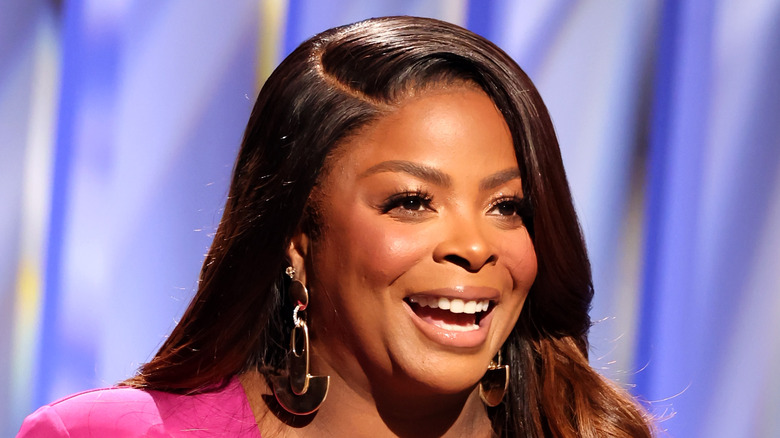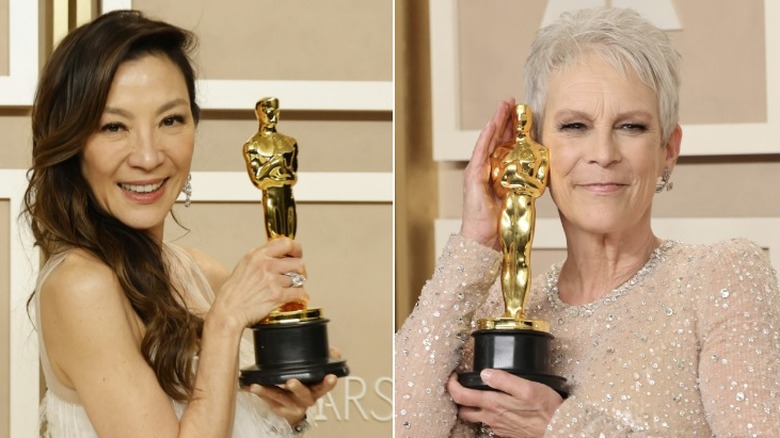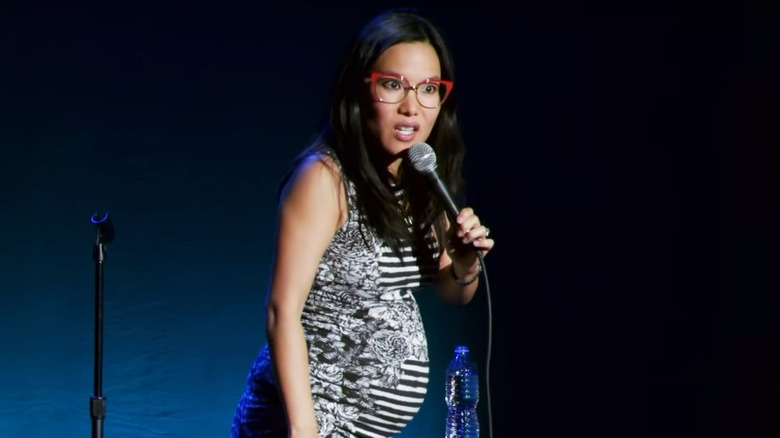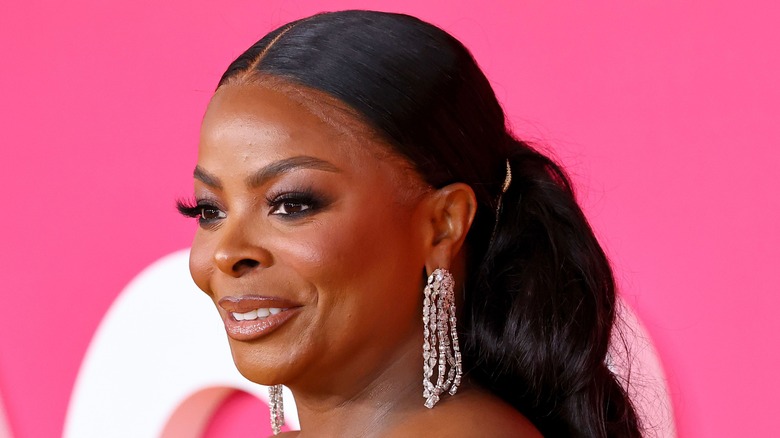Janelle James' Reason For Not Revealing Her Age Confronts Ugly Truth About The Valuation Of Women
Eight years ago, everyone got a good laugh over "Last F**kable Day," a sketch on the comedy show "Inside Amy Schumer" that poked fun at how the media treats actresses of a certain age and relegates them to one-dimensional characters that don't have much going on for them other than no longer being "believably f**kable".
But for comedian-writer Janelle James, the entertainment industry's ageism is no joke. As the "Abbott Elementary" star told Variety, "[For] each age group, people have an idea in [their] head of what it is. I don't want that to prevent me from doing anything, because I can do everything." Going only as far as admitting that one of her two sons is now 20 years old, James simply stated, "I'm grown."
On one hand, it's empowering to see a woman be firm with what she chooses to share with the public. On the other, James' wariness about sharing more personal information about herself — such as her age — points to how ingrained gendered ageism is in Hollywood.
Roles for older women continue to decline despite recent wins
Judging by how awards season goes, you'd think elder women ran Hollywood. The 95th Academy Awards had two women in their 60s, Michelle Yeoh and Jamie Lee Curtis, winning the best actress and best supporting actress awards, respectively. Two years ago, 65-year-old Frances McDormand won best actress while 75-year-old Youn Yuh-jung won best supporting actress. However, the actual number of significant roles available for older women shows a different picture. Per the latest edition of "It's a Man's (Celluloid) World", an annual study conducted by the San Diego State University's Center for the Study of Women in Television and Film, only 14% of the female characters in the top-grossing U.S. films in 2022 were in their 40s. The study found that number decreased with age, with only 8% of films representing women in their 50s, and 7% representing women in their 60s.
No wonder James is opting out of disclosing how old she is and is almost as tight-lipped about her family life. Even as she rides the wave of success with her hit TV show and is her "Newly Famous" comedy tour, she's well aware of how much value the industry puts on perception — and for actresses, it's not just about the age thing but also about motherhood.
"People have this idea of motherhood, the same way they have an idea of women as we reach a certain age," she stated to Variety. "That's not my jam," she said, referring to the "mom comic" label industry folks have tried to attach to her.
Women who try to balance their careers and motherhood tend to face more discrimination in the workplace
James isn't the only female celebrity to balk against the "mom comic" label, either. Like James, fellow comedian Ali Wong has pointed out how male comedians can have kids and make jokes about fatherhood but never get lumped under a "dad comic" category. This observation underlines how the "mom comic" label often reduces female comedians who happen to be mothers or older to a singular aspect of their lives. It keeps them from exploring other job opportunities and creative forms of expression lest they risk alienating audiences with an image that's deemed unbecoming of mothers.
Now, change "comic" to another profession and the same situation applies. While motherhood is undoubtedly a huge responsibility that doesn't receive adequate systemic support, society still expects mothers to be consumed with it over everything else, including their needs. In fact, working moms are given what Psychology Today calls the motherhood penalty in the workplace, with their competency questioned, their opportunities for professional growth reduced, and their salaries much lower than their colleagues'.
Women's devaluation based on their age and status isn't just a Hollywood thing. It happens across industries and societies all over the world, contributing to the global gender gap getting closed by only 68.1% in 2022, according to the World Economic Forum's latest Global Gender Gap Report.
Women shouldn't have to keep proving their worth as they get older
On top of being passed up for jobs, ageism affects how women are perceived. Whereas research shows that men in the workplace are viewed with increasingly more respect as they age, for aging women, the experience is quite the opposite. Per Forbes, older in women office settings are frequently thought of as less competent by younger employees, regardless of their prior achievements. This puts women in the unfair position of constantly having to prove their worth.
In order to gain respect, women over age 40 either have to work even harder than before or ease up on their ambitions in the face of expectations about how they should look and behave. Many even step back from their career because the need to prove themselves and their value never ends. But whatever they choose, there will be losers: the women who burn themselves out trying to meet expectations, those who leave behind their life's work for a less-pressured existence, or the rest of society that will miss out on these women's valuable wisdom, passion, and leadership.
Although James' refusal to reveal her age is a painful reminder of how gendered ageism persists, her defiance against Hollywood's efforts to keep her from enjoying the hard-earned fruits of her labor feels like a source of hope. As she told Variety, "I'm confident in my abilities, confident that I'm funnier than most people. ... I did the work, [I] have the respect of others." It's a rousing call to women everywhere that, yes, there is a way to refuse to play into society's ageism game.



